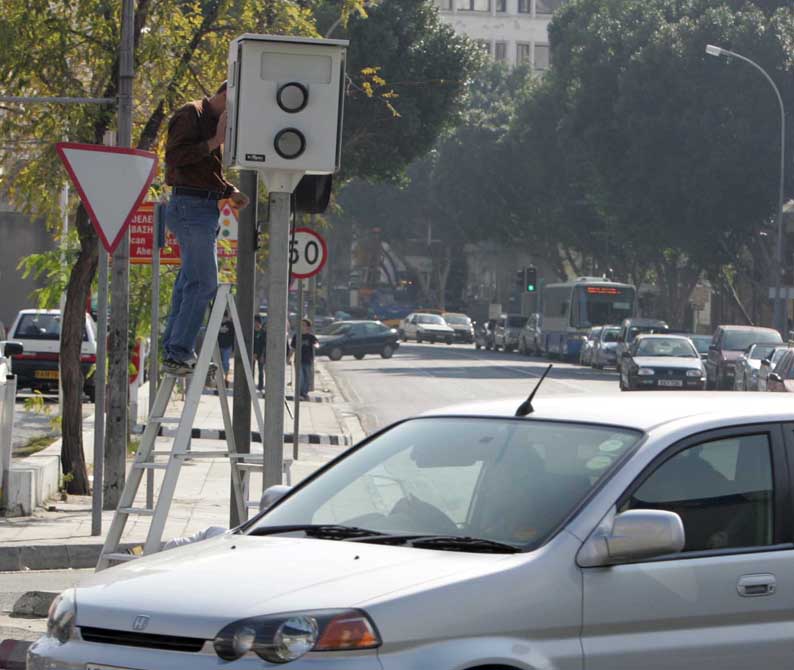After 15 years of technical and legal setbacks, Cyprus is set to reintroduce traffic cameras in a test capacity in October, even though legislation for their operation has not yet been passed by the House.
The project costing €34 million in three phases will see the company install 90 fixed cameras at 30 locations, to monitor red light and stop sign violations, as well as for speeding. Another 20 mobile units will be deployed by the police during targeted campaigns or in rural areas.
Authorities are proceeding full-speed ahead with installing the system even though the legislation has still not been passed by the House.
Haris Evripidou deputy head and spokesman for traffic police headquarters in Nicosia told the Cyprus Mail going ahead with the installation was a contractual obligation.
“There is a contract with Conduent State and Local Solutions Inc. A term of the contract demands that the company must be fully prepared for the implementation of the system,” he said.
“For this reason, the testing of the system that will be carried out has absolute legal coverage even though the bill has not yet passed the House. The cameras must be operational by October 25, 2021,” he added.
Evripidou said both the company and police have already started training the staff, and all of the necessary equipment has arrived in Cyprus, he said.
Dedicated operators will be responsible for handling and operating the new cameras, and experts were in Cyprus last month to kick-start the process.
“All procedures are on schedule, and it is expected that the pilot phase of the system will be ready soon. The equipment concerns 90 fixed and 20 mobile cameras,” Evripidou added.
Evripidou said that in some areas, such as Famagusta, there would only be mobile cameras. “I consider mobile cameras as more effective because they force drivers to be careful everywhere [they go]. The area of Famagusta is ‘empty’ for about six months in a year as tourist arrivals are low in the winter. Permanent cameras are not necessary since the policy is to place them within the cities where fatal accidents happen,” said Evripidou.
As an EU member, Cyprus has one of the worst road accident death rates per population in Europe. Thus, it has adopted the European target of 50 per cent reduction in road fatalities and a 50 per cent reduction in serious injuries by 2030.
The overall plan consists of 158 specific actions including, among others, the introduction of a photo-enforcement system to better identify motorists violating rules and the improvement of the lighting system in urban centres, where most accidents take place.
A traffic-cams network was set up in 2006 but was quickly discarded. The cameras had numerous problems, including failure to store photographs, and extensive bureaucracy that in some cases resulted in fining a person twice for the same violation while letting others go unpunished.
The cameras were disabled in 2007 and in 2008 it was announced that new cameras would be put up by 2010. In 2011 the Tender Review Board challenged the specifications outlined in the process and cancelled the government’s plan for the fifth time. Failing to find a way of effectively setting up the system, the government decided to outsource the venture to a private firm. The company that has been chosen will install the cameras and be responsible for their functionality over those five years.
Commenting on the many years of delays, Evripidou said: “From the first moment, we were in favour of the system. Some problems with the legislation and the bureaucracy forced the suspension of the project. One issue that still exists is that the old cameras have not been removed. I believe this will happen soon,” he said.
“Despite the reduction or stability that Cyprus has shown in car accidents in recent years, the truth is that if the camera system had been implemented, an even greater reduction would probably have been recorded,” he added.






Click here to change your cookie preferences